#star trek picard season 2
Photo
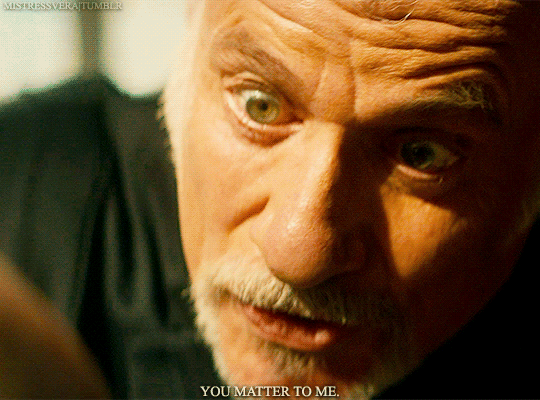



You ask me why it matters. It matters to me.
#star trek picard#startrekedit#picard spoilers#jean-luc picard#q#jean-luc x q#qcard#picardedit#startrekpicardedit#star trek picard spoilers#trekedit#star trek#treksource#trekdaily#star trek picard season 2#2x10#john de lancie#patrick stewart
1K notes
·
View notes
Text
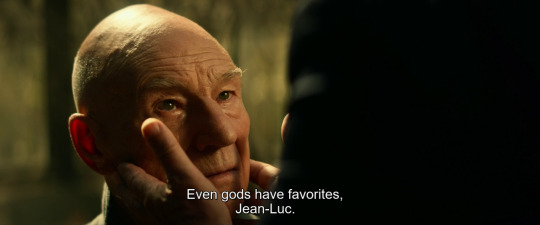

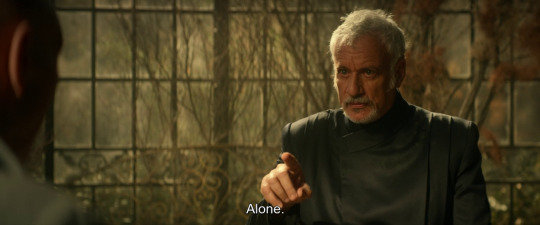
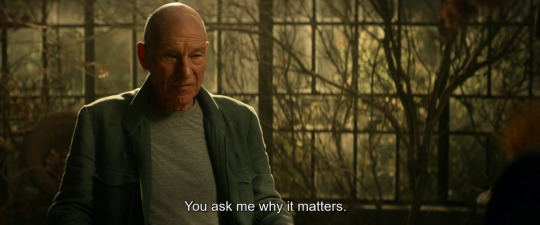
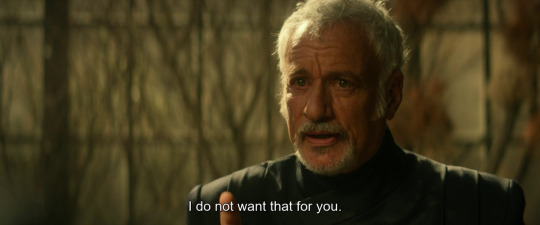
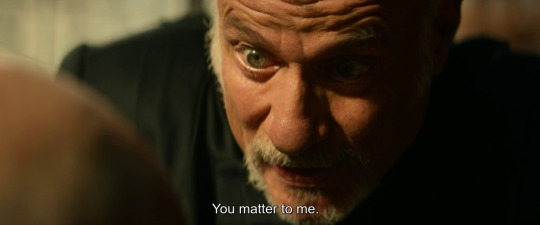
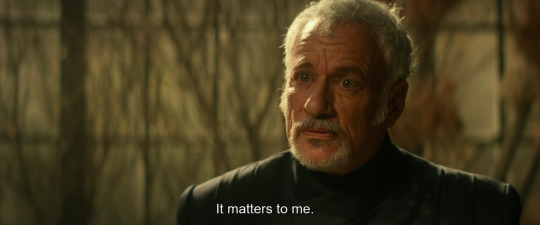
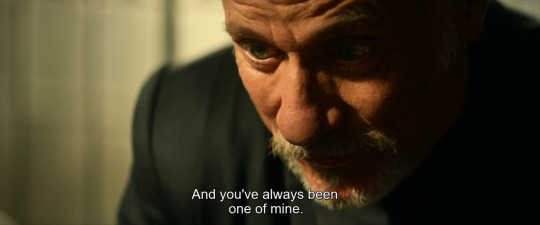
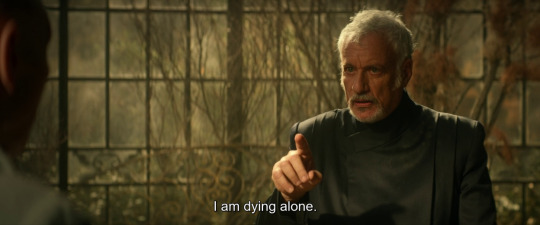

"It matters to me. You matter to me. Even gods have favourites, Jean-Luc. And you've always been one of mine."
#star trek#star trek picard season 2#Star trek picard#jean luc x q#jean luc picard#Q#Star trek Q#patrick stewart#2x10#picard spoilers#Spoilers#john de lancie#Picard and Q
523 notes
·
View notes
Text
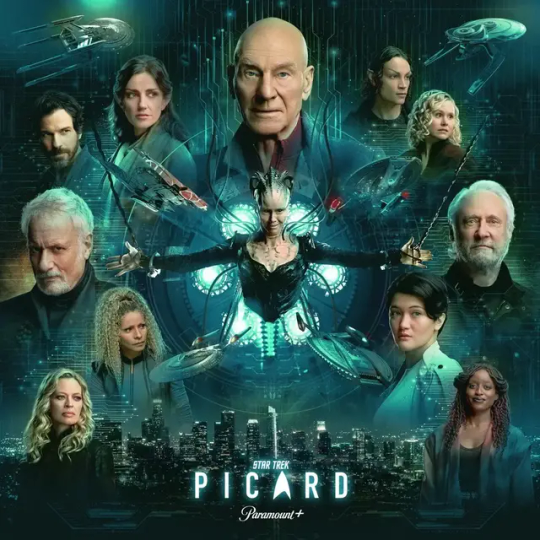
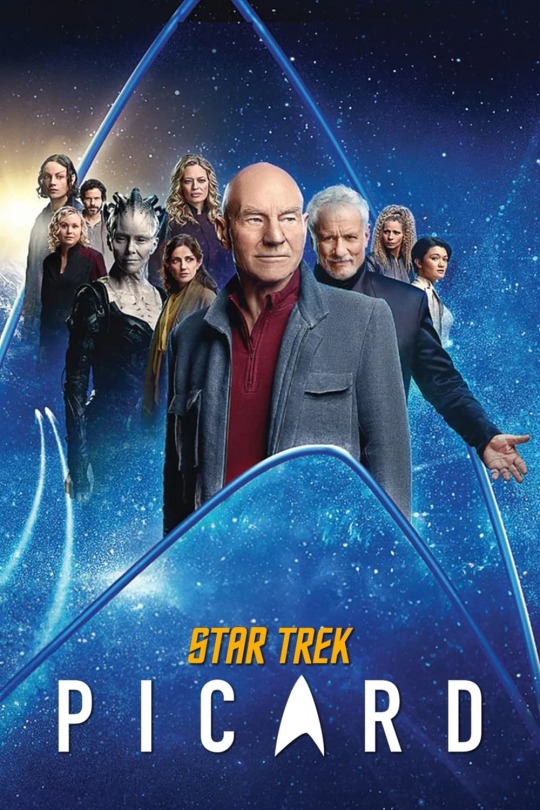


W A T C H I N G
#STAR TREK PICARD#STAR TREK PICARD SEASON 2#PATRICK STEWART#JERI RYAN#Alison Pill#Michelle Hurd#Evan Evagora#Orla Brady#Isa Briones#Santiago Cabrera#Brent Spiner#John de Lancie#Madeline Wise#Annie Wersching#Sol Rodríguez#Ito Aghayere#Penelope Mitchell#Whoopi Goldberg#Kirk Thatcher#James Callis#Jay Karnes#Wil Wheaton#STAR TREK#mirror universe#JEAN LUC PICARD#WATCHING
9 notes
·
View notes
Text
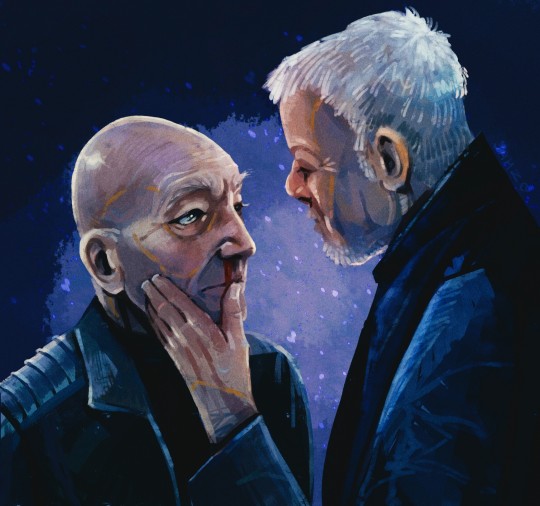
They are so gay for each other you can't change my mind
#jean luc picard#q#qcard#star trek#patrick stewart#john de lancie#star trek picard#star trek the next generation#st: pic#st: tng#star trek fanart#art#star trek picard season 2
346 notes
·
View notes
Photo
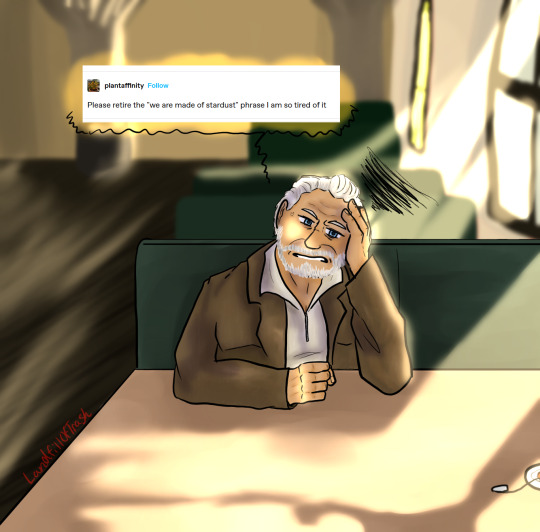
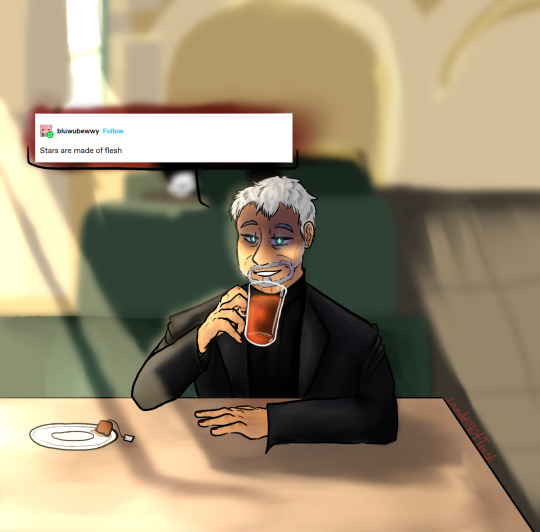
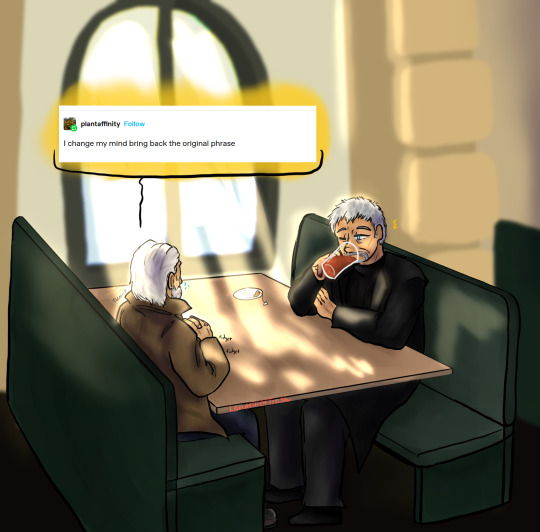
youe insouelente cowèurde
#my art#Star Trek#Star Trek PIC#Star Trek Picard Season 2#Star Madness (across the universe)#Adam Soong#Q Star Trek#it’s a shitpost batman#this idea would not leave me be /jov#John de Lancie in his outfits my beloved#Q will say the most ominous shit and not explain anything#as he should#doctor soong just rolls with it he’s not about to argue with the insane god#bc you can’t tell me that’s not what happened in that scene; Adam got a sense of what Q really was and went “oh shit’’#anyways. blorbo < 3#excuse the backgrounds lmao#rea’s trash
41 notes
·
View notes
Text
On the Changing Nature of the Borg
I was thinking about Season 2 of Star Trek: Picard yesterday, and I was once again struck by one of the things that disappointed me about the show: The complete retcon they gave the nature of the Borg.
I'm far from the first person to make this observation, and when I complained to friends about it last night, I was a little worried I might be doing the S2 writers a disservice. Maybe I was misremembering the details from the show and putting too much of my own interpretation on top of it. Or I might have latched on to somebody else's criticism and not checked to see if it was supported by the text.
But then I rewatched episode 2x09, "Hide and Seek" today, expecting to have to look very closely for the details that support my reading - only to find that I didn't over-interpret some throwaway line, this is a key piece of dialogue.
So, here it is: my thoughts and feelings about what happened to the Borg in season 2!
Spoilers for season 2 of Star Trek: Picard ahead, obviously. Also quite a bit of saltiness. (I have tagged this post accordingly, so please take this as your sign to blacklist that tag and/or stop reading if you're not in the mood for saltiness ;) )
Let us begin with a quick walk through the history of the Borg.
[Edit: That was a lie, I am incapable of "quick." Prepare yourself for a verbose trek through the history of the Borg.]
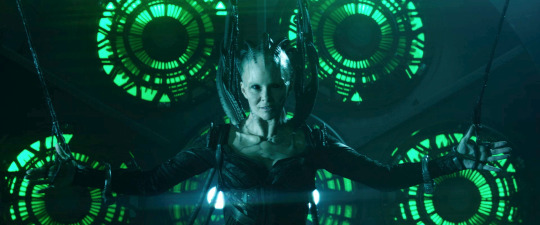
In TNG, they were introduced as practically a force of nature. They didn't hold grudges, they weren't ambitious or greedy or megalomaniacal. They didn't spread across the Galaxy because they wanted to be conquerors or rulers. They simply spread. Like a virus, or an invasive plant.
They added new technologies and biology into their collective to improve themselves and their chances of survival. Assimilation was akin to evolution for them. (I know this is not how biological evolution works. I'm using it as shorthand. )
These Borg didn't care that people might not want to be assimilated because for one, their objections would be overwritten once they were Borg, and for another, they had no chance of escaping their fate, anyway.
This first, original form of the Borg, in my opinion, was the most truly alien they have ever been.
This characterization started to collapse a bit once First Contact decided to introduce the Borg Queen as a weird psycho-sexual horror component, making the Borg less of a force of nature and more of a nominally collective hive-mind that operated like a person would.
Voyager definitely added to this interpretation of the Borg, making them more beholden to the moods and wishes of the Queen. They were no longer simply a dispassionate alien organism, moving through the galaxy in a quest for self-improvement because that was their nature. Instead, their characterization became more human, pursuing specific goals, strategies and motivations.
On some level, I completely understand this choice. Making your main series villain a force of nature rather than a character with personal motivation is difficult to pull off, especially when that isn't the main story you're trying to tell. But it did end up taking the Borg one step farther away from their original alien-ness.
One thing Voyager added to the mythos, though, that I find deeply fascinating is that instead of having the Borg Queen lust for power and control, or having her act out of fear and self-preservation, they instead focused on the concept of Perfection. In "The Omega Directive", Seven of Nine explains that to the Borg, the pursuit of Perfection is almost spiritual.
According to this interpretation, the Borg don't simply search out and assimilate new species because of an "evolutionary" drive for self-improvement. Instead, they are on a quest to reach a state of absolute perfection. They add new technologies and biological diversity in the hopes of coming closer to this goal and one day finding this most ideal state of existence.
These Borg don't care about your objections to assimilation, because they are convinced that their vision of perfection is universal. Every species must obviously strive for perfection and they can offer that, so why would you ever want to resist? They have no concept of the fact that others might not define perfection in the way they do, might not strive for it at all, or that "perfection" at the cost of giving up all individuality and sovereignty might not be an acceptable trade-off for people.
(And no, Voyager is not internally consistent about this. Barely any long-running tv show is entirely internally consistent. But the point still stands.)
On some level, this drive also brings the Borg closer to humanity: less dispassionate virus and more colonizers who come to extract value from “lesser cultures” and impose a more enlightened way of life on them because They Know What's Best. Still, I think the relentless, uncompromizing pursuit of a nigh-spiritual ideal of Perfection and utter disinterest in personhood and self-determination of other people make the Borg into a formidable and, at the end of the day, alien villain.
Which brings us to season 2 of Star Trek: Picard.
The thing that rubbed me the wrong way about the way the Borg were characterized here is summed up in an exchange between Jurati and the Borg Queen:

Jurati: "Millions of species, planets, and still you always needed more."
Borg Queen: "Perfection takes time, dear."
Jurati: "This was never about perfection or evolution or any of that bullshit. It was never enough, because you're just like me. Lonely."
And that's it. In all of five sentences, we have retconned the entire history, motivation and fundamental nature of one of the main alien species of the Trek universe.
Everything we have been told about the Borg, everything they have said about their reasons and their character, none of it was true. They have been lying to all of us and to themselves this entire time. They aren't a force of nature or a people/collective organism in pursuit of a higher ideal. Instead, it was all a single woman's misguided quest to not feel alone anymore.
Now, I understand that for some people, this revelation adds a new layer of complexity to a villain that had grown somewhat stale. And I have seen others argue that they like the idea that the Borg collective is actually all about connection. If that's you, I'm not saying you're wrong or trying to ruin your enjoyment of these characters.
But personally, I find this development rather disappointing. This plot twist retroactively changes not only the philosophy, psychology, and raison d'être of a fascinating alien culture but also the narrative significance of the Borg in the Trek cosmos.
Before, they were in conflict with the Federation because they refused (or were unable) to look outwards and see that there was more than one "correct" mode of existence, and that the life of people different than them had worth. Now, the conflict arises because they refuse to look inward and acknowledge that what they are really looking for cannot be achieved through conquest.
Where before they assimilated civilizations in a quest for utmost perfection no matter the cost, now they are assimilating masses of people in the hopes of creating a chorus that will drown out the loneliness.
Don't get me wrong, that sort of twist can make for an intriguing villain arc, but firstly, it needs to be executed with a lot more care than season 2 made room for, and secondly, it works a lot better for individuals or groups of individuals than for a species that is ostensibly a telepathic hive-mind.
(Seriously, the in-universe implications -- for the Prime-timeline Borg, the Federation, the xBs -- are staggering and are glossed over completely on the show. Then again, this is the same season that doesn't bother to show (or tell) whether Agnes Jurati chooses to remain with the Borg Queen out of a genuine desire to create a new collective or as a desperate bargain to save her friends. You know. The culminating moment of her character arc in season 2. But that is another rant.)
At the end of the day, I don't feel like this newly-revealed secret motivation adds a fresh layer of complexity to a well-known villain. Instead, I think it takes away many of the aspects that made the Borg intriguing, both narratively and as an alien species, and turns them into something much more human and, frankly, much more banal.
#take 2#the first time round tumblr somehow published the previous draft from before i deleted all the outtakes at the end 🙃#star trek picard#star trek picard season 2#the borg#borg queen#agnes jurati#star trek meta#star trek picard meta#meta musings#picard saltiness#long post#i worked very hard to avoid the phrase 'the power of friendship' in this rant and i want you all to know that#i'm trying to show a modicum of respect over here!#seriously though. i was a little shocked when i rewatched the ep and heard that bit of dialogue#it feels a bit like such a cheap shot at all the writers who created and shaped the borg#'WE are going to tell you what's ACTUALLY going on with these characters.#and it's not this evolution or perfection bullshit'#i know agnes is trying to provoke the queen#and other shows (not to mention season 1) have also turned established canon on its head#but again: it's a question of intention and care. and i don't feel like the writers gave that development enough room and respect#to make such a line seem like anything but a 'your ideas about these caracters were *dumb*' type callout to previous creatives#also doesn't help that it's not the only time in s2 where it feels like the writers are being mean spirited about previous characterization#anyway#/salt
48 notes
·
View notes
Text
Behold! The Crew of La Sirena travels back in time to Funkytown:
youtube
#thetalesofagrimheart#thesevenwondersofawitch#the seven wonders of a witch tribute videos#star trek#star trek Picard#star trek picard season 2#picard season 2#q#q star trek#captain jean luc picard#jean luc picard#seven of nine#raffi musiker#seven x raffi#raffi x seven#7 of 9#cris rios#captain rios#agnes jurati#the borg#the borg queen#Picard 2024#time travel#q x picard#picard x q#talliann#renee picard#dr soong#wesley crusher#la sirena
40 notes
·
View notes
Text
Is no one going to talk about how Q essentially fixes one of the mistakes he makes by kicking off this whole thing??! Like, he introduces the borg to humans early, effectively making himself indirectly responsible for Locutus and all that stuff. THEN uses his final acts to help create a new borg, one willing to work with humans without forced assimilation, thereby giving Picard closure in that sense as well??! That now, because of Q's actions, he's able to see friends where he once (rightly) seen traumas (think First Contact)??! Because I have just figured that and I'm just like... DEvOtIOn???!!!! EH?!
It's the layers really for me
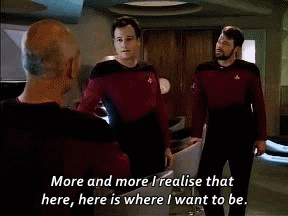
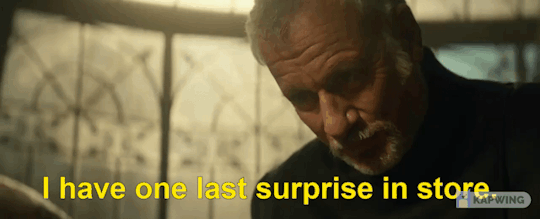
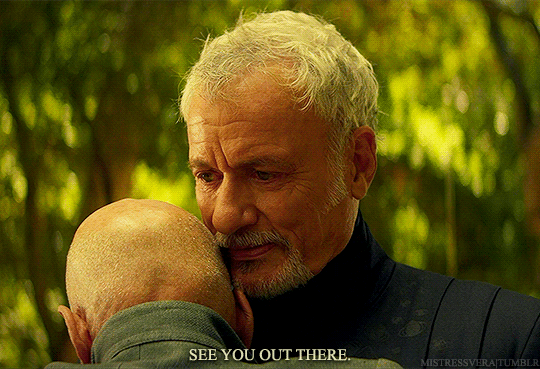
#qcard#star trek#jean luc x q#star trek picard#star trek picard s2#star trek picard season 2#star trek picard spoilers#q star trek#jean luc picard
134 notes
·
View notes
Text

This is so true 😂 but ok I just wanna say how awesome it is to be apart of this chaotic family.
#uss saffi#seven x raffi#seven of nine#raffi musiker#michelle hurd#jeri ryan#star trek picard#star trek#star trek fans#Star Trek Picard season 2#fandom
62 notes
·
View notes
Text


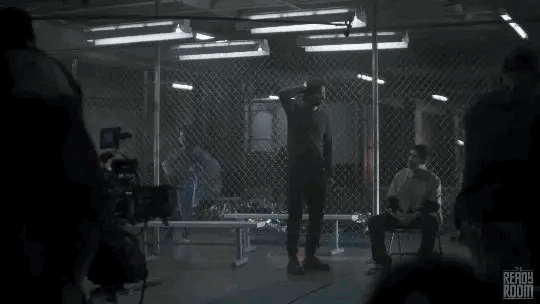
Happy Santiago Sunday!
Here’s some Rios for you all.
Have a great day!
Credit to Original Creators
#santiago cabrera#men we love#characters we love#cristobal rios#aramis#aramis in space#star trek picard season 2#star trek picard#happy santi sunday#santi sunday#santiago cabrera gifs
9 notes
·
View notes
Text
Even when it's utterly shit, Star Trek is my comfort viewing
13 notes
·
View notes
Photo
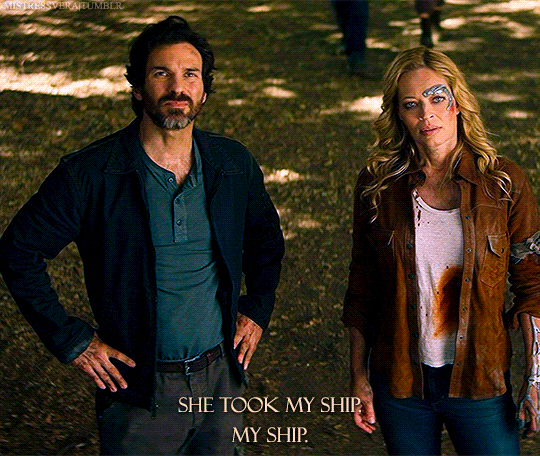

#star trek picard#startrekedit#picard spoilers#seven of nine#cristobal rios#raffi musiker#seven x raffi#cristobal x seven#picardedit#sevenedit#raffimusikeredit#cristobalriosedit#trekedit#startrekpicardedit#star trek#treksource#trekdaily#star trek picard season 2#2x09#santiago cabrera#jeri ryan#michelle hurd
107 notes
·
View notes
Text


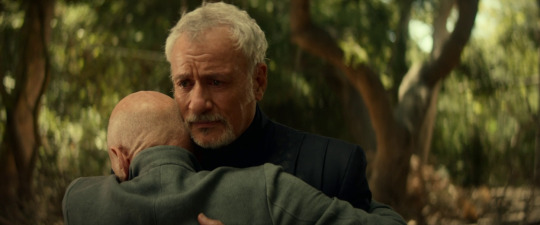
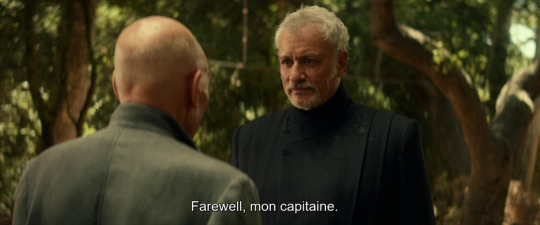

My feels🤧
#star trek#star trek picard season 2#Star trek picard#jean luc picard#jean luc x q#Picard#Q#q star trek#patrick stewart#john de lancie#2x10#picard spoilers#st pic spoilers#Spoilers#season finale
293 notes
·
View notes
Text
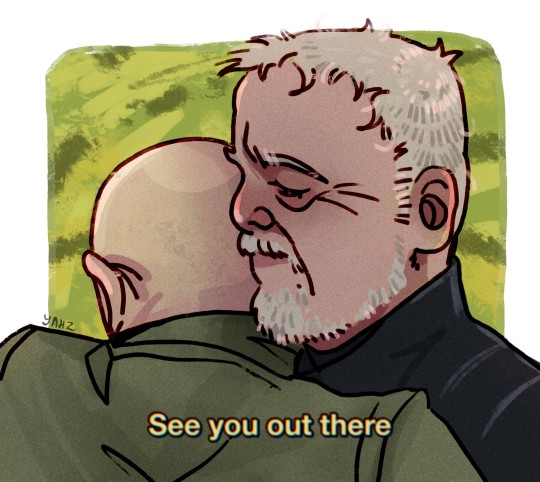
See you out there
#star trek#qcard#jean luc picard#q#picard#patrick stewart#john de lancie#qcard fanart#star trek picard#star trek picard season 2#st: pic#star trek fanart
139 notes
·
View notes
Text
Further watching of Star Trek Picard:
Maybe the Borg Queen In S2E1 is Jurati after turning the Borg less Assimilationy and more friendly. That's why she asked to Join the Federation.
Hm curious how this will Turn Out.
#star trek#star trek picard spoiler#star trek Picard season 2#star trek picard season 2 spoiler#pic spoiler#Pic s2e10
3 notes
·
View notes
Text
I was talking to some friends about the PIC season 3 finale yesterday, and I had a bit of a realization. I have since rewatched the final two episodes (and also the end of season 2), and am now newly felt with so much rage and sadness.
Here's the thing: the Big Dramatic Climax that season 3 gave to Jack Crusher? That is what was missing from the "arc" they wrote for Agnes Jurati during season 2.
Let me explain!
I have talked many times about how I think Jurati was served extremely poorly by her storyline in season 2. It was bad then, but it is apalling when contrasted with Jack Crusher's story in season 3.
Both of them share a similar conflict: we are told that they feel lonely and long for a form of connection they have never been able to find. At the same time, we see both of them surrounded by people who clearly love them and care deeply about them, but apparently that is not enough to break through their feelings of isolation.
Both of them are more or less told that the Borg are their way out of loneliness. With Jack, it's the Borg Queen's motherly voice talking to him in his head since he was a kid, with Jurati, it's another Borg Queen, telling her seductive tales of grateness. But they both don't primarily let themselves be assimilated to escape their loneliness.
Jack runs to the Borg Cube in a lone wolf, impulsive manchild effort to Get Answers For Himself despite the fact everyone around him is trying to help and he is playing exactly into the Queen's hands. Jurati first let's the Borg Queen into her head to get information out of her that will save her friends. It's risky, and there's definitely an element of hubris there, but it's more the self-sacrificial kind.
Jack runs into the Cube to shoot the Queen, but the Queen tells him that joining her is the only way he will ever stop feeling that terrible loneliness. She taunts him: "If you could shoot me, you would have done it already." And she is right. Jack drops his phaser, has a big scream of manpain, and then accepts his fate.
With Jurati, the Borg Queen is holding a French cop hostage and promises the only way Jurati will ever be anything but utterly and completely lonely is to give herself over to the Queen. Jurati is tempted and torn and deeply intrigued. And then she shoots the Borg Queen. Dying and desperate, the Queen tells Jurati that if she dies, the part of her that is already in Jurati's brain will die, too, and Jurati will know nothing but gnawing emptiness and loneliness forever. They could be great together! And Jurati believes it and is visibly so tempted - and then she shoves the Queen's hand away and tells her "We are nothing together!"
And only then, with her dying breath, does the Borg Queen offer the one thing that has kept her alive this whole time, the one thing that finally convinces Jurati to let herself be assimilated: "You need me to get home."
Jack Crusher is faced with the Borg Queen offering to fulfill his deepest, most painful desire, and he allows her to assimilate him. Agnes Jurati is faced with the Borg Queen offering to fulfill her deepest, most painful desire and even though she wants to give in, she pushes back and pushes back, but finally allows herself to be assimilated when it's no longer just about her.
(And yes, the Borg Queen keeps insisting that Jurati is lying to herself when she says she "only" allowed the assimilation to rescue her friends, and that seems fairly true. It's very clear that Jurati is feeling inadequate and lonely and believes the Queen's words about greatness and connection. But whereas Jack gives into that pull pretty much immediately, Jurati does resist it until it becomes about more than herself. Would she have eventually given in if the only thing on offer was a promises the Borg Queen made her, and her alone? Maybe. But what we actually see on screen is her rebuffing the Queen twice despite being extremely tempted. So maybe not.)
Once they are assimilated, we get an insight into both Jurati's and Jack's experience with the Borg hivemind (though a very small hive in Jurati's case).
Jack's mind is in blissful limbo, finally at peace. He is happy. He has found the connection he has always longed for. He is loved and his way of seeing the world is finally validated as The Correct Way. Meanwhile, his assimilated body is raining down destruction on countless Starfleet ships and stations.
Jurati, on the other hand, is resisting and fighting the Borg Queen every. step. of. the. way. She gives her more control because she needs help to save her friends, and the Queen lies to her and manipulates her, all the way until she can fully take over Jurati's body. But even then, Jurati still repeatedly wrests control back, desperately trying to stop the Queen every chance she gets. There is no togetherness, no connection, no blissful loss of self in a greater whole.
I really want to emphasize this: We do not get to see a single scene where Jurati feels any real benefit from her connection to the Queen, which isn't then immediately revealed to have been a deception. The one moment of glory, the one moment that could have been a "see how great we are together?" is her big musical number at the Europa gala (and to a lesser extent the evening leading up to it, though in my opinion, Alison Pill very much acts it like Jurati is serious when she tells the Queen that none of this is fun or enjoyable. We've seen Jurati when she's conflicted. This is not that). But every. single. positive. experience. at the gala is immediately made moot when it's revealed it was all a tactic the Queen was using to manipulate Jurati. Any connection or togetherness that might have existed throughout the evening is immediately turned against Jurati and she is basically shown that believing in those things was a mistake, because they were a lie.
So, how is it, that when it comes to the climaxes of their stories, Jack is the one who leaves the Borg behind and Jurati is the one who chooses to stay?
When Picard links himself up to Jack and tells him he isn't alone and Picard loves him and understands his loneliness, Jack rebuffs him. He rejects the hand Picard is reaching out because Jack is "where he belongs": one with the Borg, finally at peace. He makes it clear that he sees the person who lovingly reaches out to him, but it's not enough.
The one time, the only real time, somebody reaches out to Jurati, it's Rios at the gala. He tells her that he sees her, he cares deeply about her, he's here to listen and wants her to talk to him so they can connect. But we don't actually find out how Jurati feels about that. She's using her glib deflecting, jokey persona to isolate herself from real emotion, but she seems to melt a little when Rios tells her "I care about you. You know that." And then the Borg Queen destroys the moment by kissing Rios before Jurati herself has a chance to take a position on what he's been saying.
Does she not believe Rios when he says he cares about her? Is Rios's care not enough? Is it only romantic love that would make her whole? Would even romantic love never be able to live up to the Special Relationship the Borg Queen is dangling just outside Jurati's reach? We never find out. Jurati is never allowed to reject the hand that is held out to her.
And then, there's the actual climax.
Imagine you're writing a story. Your character has been getting seduced by this enigmatic, sinister force and has finally given in and joined them, even though that could mean destruction not only of themselves but of everyone and everything they love. What is the endpoint of that story? What is the decision your character needs to make for their arc to feel satisfying? What has it all been building up to?
In the vast majority of cases, that decision, that central question at the core of their story, will be: "will they decide to remain with the seductive force and fully give themselves up (maybe changing the force for the better along the way)? Or will they reject them and return to their humanity?"
Jack gets to make that decision. We see him feel connection, acceptance and peace, finally, for the first time in his life, when he joins the Borg. And then Picard comes and offers Jack an alternative. Tells him that there is another way to escape the loneliness, and demonstrates it through his willingness to die for/with his son. And Jack Crusher, being presented with these two options, chooses to go with Picard.
We never see Jurati make that decision. We never get a moment where the narrative acknowledges that maybe, just maybe, there might be another path for Jurati to not feel lonely anymore. The writers might say it's what they're doing, but they don't show us that. When Rios tells Agnes she's not alone, we don't see her agree or disagree, it's entirely left hanging. And after that, there is no moment where anyone steps between Jurati and the Borg Queen and says: "She is lying to you about this being the only way forward, there are other paths out of loneliness and isolation. Please, choose to come with us."
We don't even see Jurati struggle with the conundrum of "should I give in and let the Borg Queen take over or should I try and stop this in some way?" (Which, incidentally, was pretty much Agnes's big turning point in season 1, where we very clearly see her trying to decide whether to follow the mission Oh assigned her or to put an end to it - and then pick the latter path by dosing herself with the hypospray, disabling the tracker at the risk of her own life.)
Instead, in season 2, we are only shown the outcome of Jurati's decision. Her choice to make the Borg Queen an offer happens offscreen. We don't have any insight into Jurati's thought process, we don't see her agonizing over her different options. Hell, we don't even get confirmation that she knows she has options!
Jack Crusher has his dad standing in front of him and the Borg all around, and he gets to choose which of them he trusts to help him feel less alone. Jurati has the Borg Queen, who has been deceiving, manipulating, and abusing her all season, and no other alternative. And she doesn't choose, she is shown to have chosen.
I know I've said this before, but it bears repeating: the character who does make a decision, who is offered two clear paths and gets to pick one, based on everything that has happened to them throughout the season, the real focus of the Borgati storyline, is the Borg Queen. What the season 2 writers give us is not Jurati's character arc, it's the Queen's.
Jack Crusher is a main character. He gets to learn and change and grow, and, in the end, he gets to make a decision about his fate (on screen, which is what counts in this kind of Holywood-adjacent storytelling). Jurati is a supporting character in someone else's story.
We don't know why she ends up choosing the Borg. Is it because she hopes creating a voluntary collective will eventually give her that feeling of connection? Is it because she did actually feel something other than annoyance, dread, and betrayal while she was sharing her consciousness with the Borg Queen, and she wants to keep that feeling? Is it because she thinks assimilation is going to be terrible, but at least it's better than what she was feeling before? Is it a desperate tactic to save her friend, who is currently bleeding out at her feet? The writers never tell us.
Jurati's passionate speech to the Borg Queen about creating a new collective never touches on what she, Jurati, actually wants. At no point does she say that she thinks doing this will be good for her. She explains how it will benefit the Borg Queen, she lays out how it is a net positive for the world. But never once does Jurati say that this new collective is what she wants for herself.
Don't get me wrong, Jack Crusher's story is written terribly! His motivation is weak, his growth is minimal, he faces absolutely no consequences for his actions, his reasons for running to the Borg in the first place are childish (and while the character is supposed to be 23, that is undercut by casting an actor who is just way too old for the role, not just in looks but also in how he acts), and the fact that Picard, the man who spent two seasons learning to find purpose, joy, and familial and romantic love, tells Jack Crusher that the only thing that has given him a real reason to live is the bio-son he met half a week ago? Is an insult of such magnitude I will still be yelling about it in a decade.
But this one thing the writers got right: they allowed Jack the space to actually make the defining decision of his own character arc. And the fact that they were capable of this all along and chose not to do it for Jurati? That hurts incredibly deeply.
Would I have liked Agnes's story in season 2 if it was actually hers and we saw her being offered the choice between the Borg and humanity and choose the Borg? No, probably not. In my opinion, it goes against everything that defined Agnes's story in season 1 and warps her character in a way that I, personally, find deeply hurtful and troubling (hence why I usually distinguish between season 1 Agnes and season 2 Jurati). But at least I wouldn't be so angry every time I saw a reviewer point to "Jurati's arc" as something season 2 got right.
And now, after rewatching the finale of season 3, I finally have a much clearer way to illustrate what was missing and why it makes me so angry and sad.
The writers had it in them to tell a story about a lonely person seeking connection and being made to choose between finding it with the Borg or wihtin humanity. They wrote exactly this story for Jack, and had him choose humanity. With Jurati, they might have intended to write a story about a lonely person seeking connection and have her choose the Borg in the end. Instead, they wrote a story about the Borg that has a lonely person in it, but in the end that person's feelings, characterization, and choices aren't all that important.
And seeing that praised as "Jurati's arc" will never be anything but devastatingly painful to me.
#long post#seriously... so long...#star trek picard#star trek picard season 2#star trek picard season 3#picard spoilers#picard saltiness#agnes jurati#jack crusher#borg queen#storytelling#character arcs#why yes i *am* once again yelling about season 2#listen#jack's character arc in season 3 is SO DUMB#it's unoriginal and insulting and i hate it! so this is by no means a defence#but it did really highlight this issue for me in a new way and gave me a much better example to articulate and illustrate my thoughts!#and just to pre-empt one particular objection: this is NOT about shipping#i LIKE (S1) agnes and rios together#and i don't find the psycho-sexual horror show that is jurati and the borg queen intriguing. you do you but it's not for me#but it's not about shipping#it's not that i want agnes and rios to get together in the end#it could have been picard who reaches out to jurati. or raffi. or SEVEN who has actually faced this exact dilemma before and chosen humanit#or it could have been rios telling her he cares about her in a non-romantic way. in this case i might have even preferred that to romance#this is not about shipping#it just breaks my heart to read all of these people once again rave about jurati's season 2 'character arc' in the context of S3#when the arc that she actually should have had has just been given to yet another mediocre white guy#and the jurati we did get was so utterly disconnected from the agnes i fell in love with the first time i saw her laugh through her pain#it just hurts#and i guess i needed to get all of this out of my brain so i could hopfeully finally start to move on and find some closure
17 notes
·
View notes